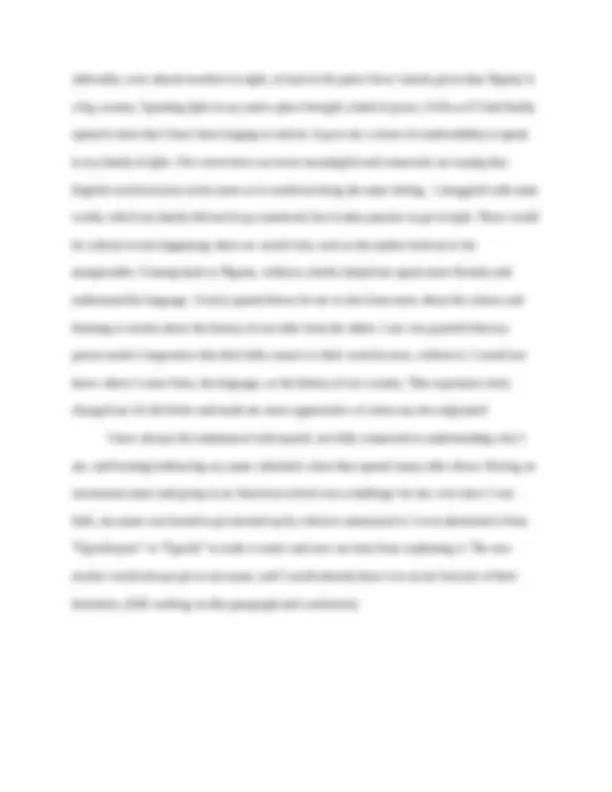



Study with the several resources on Docsity

Earn points by helping other students or get them with a premium plan


Prepare for your exams
Study with the several resources on Docsity

Earn points to download
Earn points by helping other students or get them with a premium plan
Community
Ask the community for help and clear up your study doubts
Discover the best universities in your country according to Docsity users
Free resources
Download our free guides on studying techniques, anxiety management strategies, and thesis advice from Docsity tutors
There are many different languages out in the world. Some have been discovered, and others have possibly yet to be uncovered from long ago/present. It is interesting to look back in time and comprehend how our society communicated with each other. English is a common language amongst a vast amount of places in the world. It is a language that is common enough that people use it as a barrier when they do not know each other’s language.
Typology: Essays (university)
1 / 3

This page cannot be seen from the preview
Don't miss anything!


Ugochinyere Duruaku Professor Rowan English 101 27 May 2021 Language (Working Title/Paper) There are many different languages out in the world. Some have been discovered, and others have possibly yet to be uncovered from long ago/present. It is interesting to look back in time and comprehend how our society communicated with each other. English is a common language amongst a vast amount of places in the world. It is a language that is common enough that people use it as a barrier when they do not know each other’s language. English is not the most popular language used in the world, but it connects one another. For example, various people would use English for words they did know in their language. My family is from Nigeria, and in Nigeria, there are parts of the land that is home to the Igbo tribe, which is also the language my family speaks. The language is rich with an abundance of culture and praise; it is a must for the young generation to keep the language and tradition alive. Learning my traditional language, Igbo, allowed me to connect with my family, country/culture, and, lastly, myself. Growing up, I was the only one in my family who could not fully grasp Igbo, and I would always do my best because it would connect us more as one if we communicated in it. My parents would always speak to me in our native tongue, and I would respond in it, well, at least try. They have been speaking Igbo to me ever since I was a baby; doing that helps me understand the language fully. Sometimes when I did not know a word, I would mix it with
English. It was easier for me to go about it that way, but eventually, I would have to get the word if I wanted to be fluent. When I first started learning Igbo, it took a considerable chunk of time; but almost any language can do that to you. My parents would enforce the rule of Igbo in the house and English outside. This is a way for me to practice since I am in the house all the time. My sisters would tell me jokes in Igbo, and I would laugh without fully understanding it, but when they explained it in English, its amusement disappeared. We would bond over moments such as telling jokes or movies. My family loves Nollywood movies; we would go the whole day watching them together as some movies had five to six parts in them. Movies were a bonding moment and a teachable one because I would learn how to say certain words from watching them. I would try and mimic their pronunciation of different words hoping it sounds correct. With some practice, I was making progress towards a goal I always wanted to complete, one of the final pieces to the puzzle. Being able to speak my native language with my family made us stronger and more connected as one. While growing up, Nigerian Igbo culture always played a significant role in my family. My parents would put my siblings and me into our local community clubs in the hope for us to become more in tune with our culture. In these clubs, such as Igbo School, we learned the language, Igbo culture, and Nigeria’s history. The kids in it were mostly kids who were born in America. Although typically, most Nigerians would bring their kids to America hoping for better opportunities and not lose their connection to Nigeria, they were put into organizations like these. Most kids are often Americanized and forget where they come from; my parents wanted me to remember the place they grew up. Often, we would travel back to see family and have a little family vacation at our home there. It is entirely different; coming from America to Nigeria is a significant change. Things that I would consider standards, such as traffic lights or